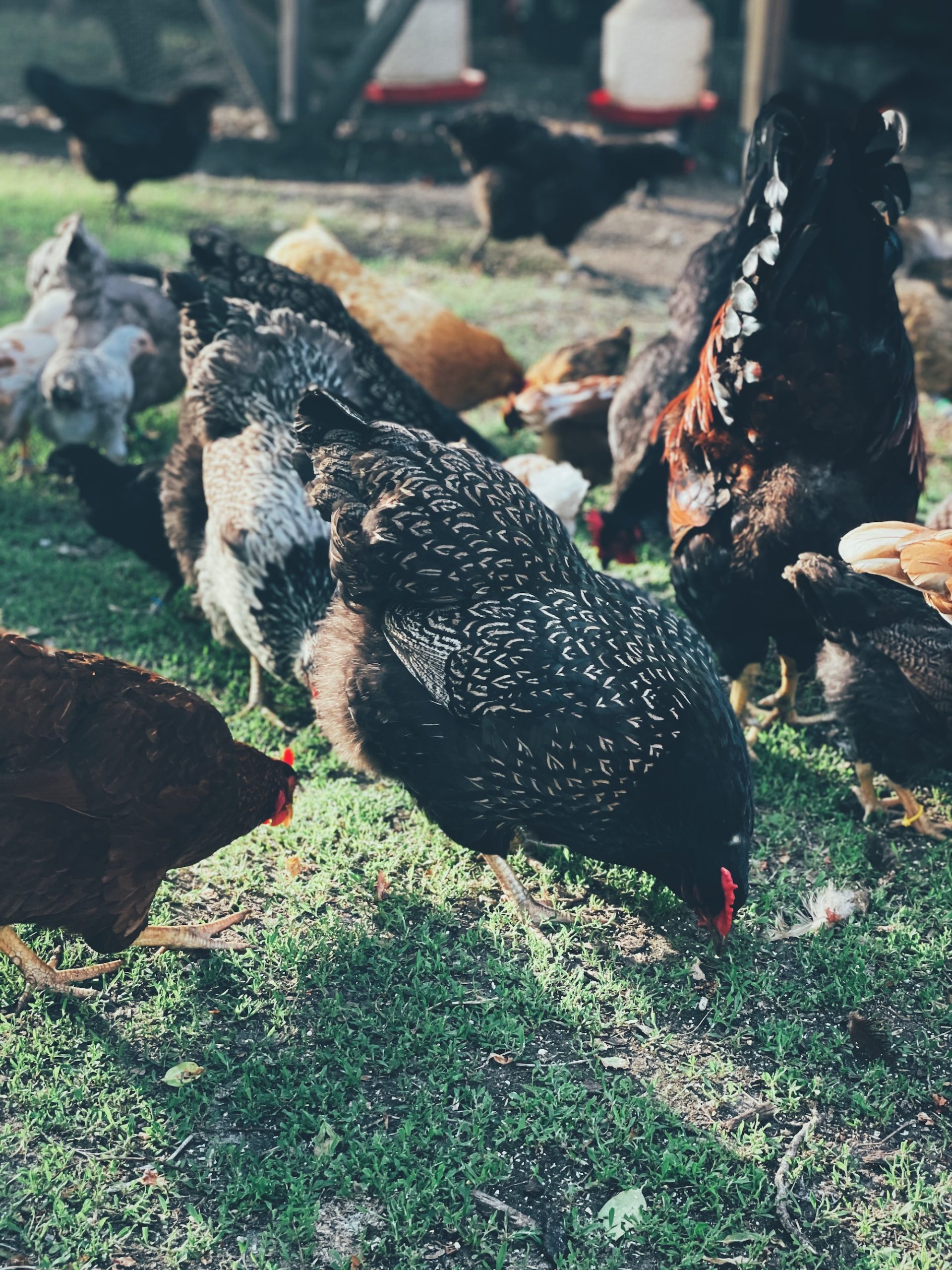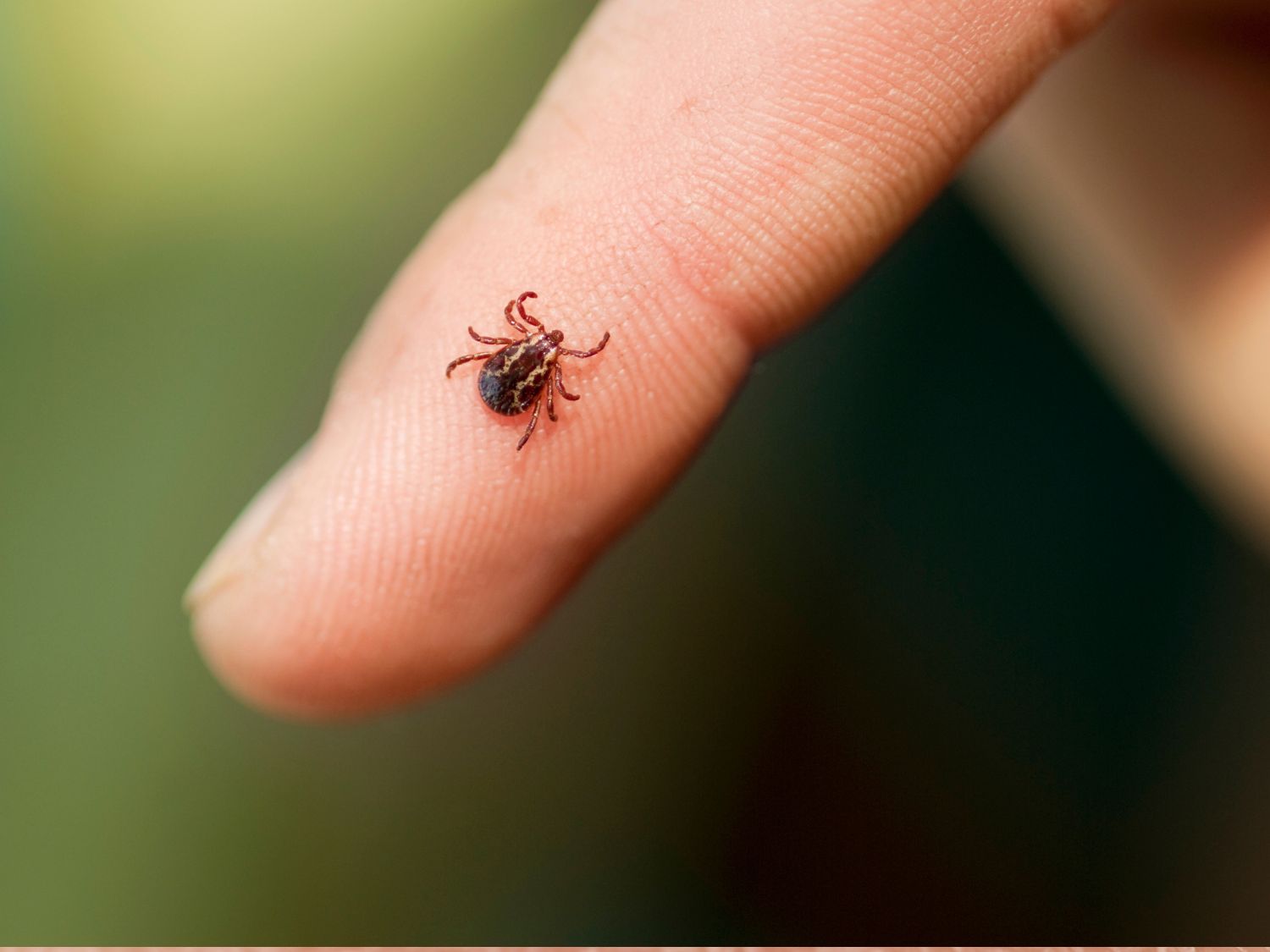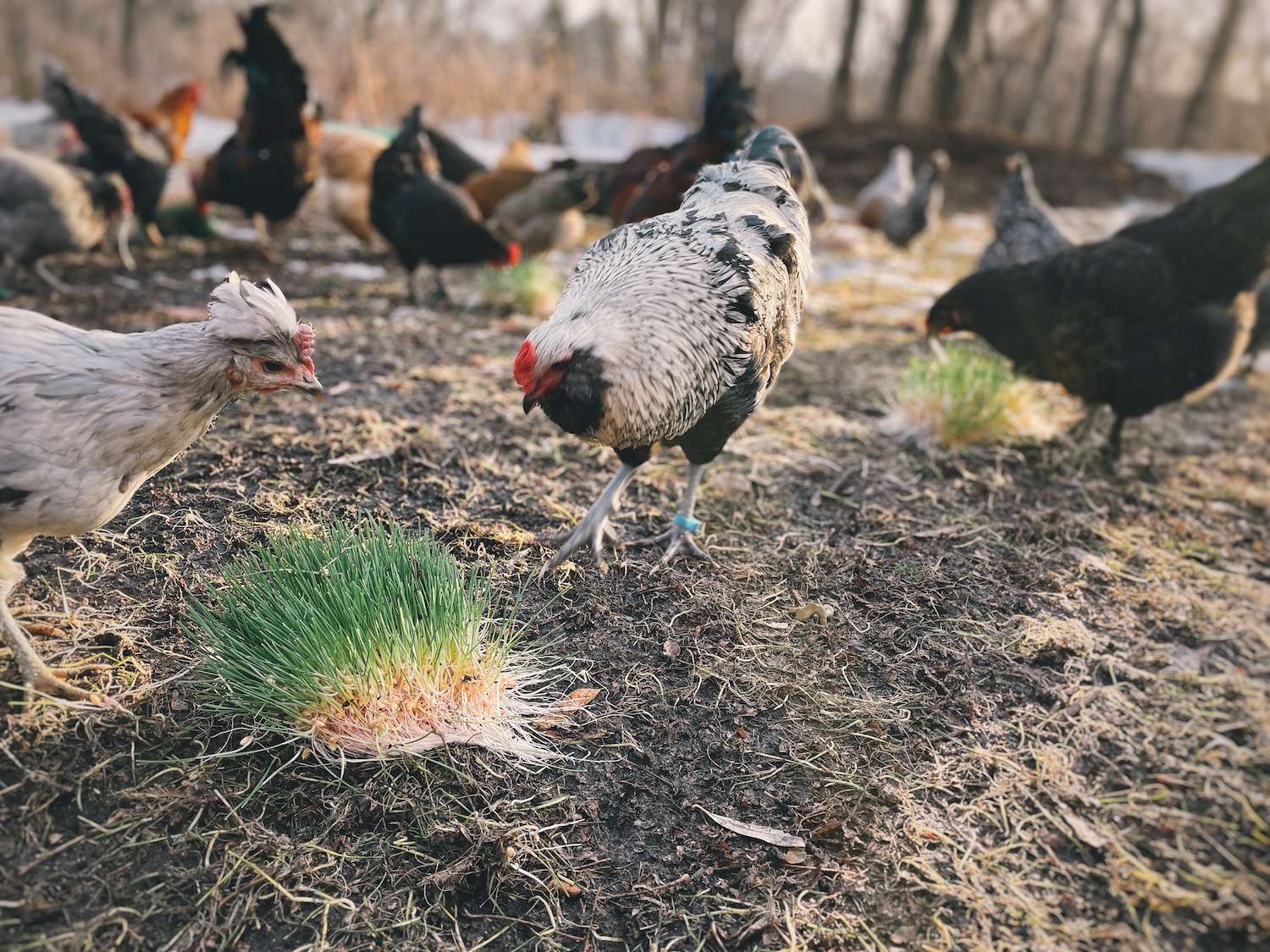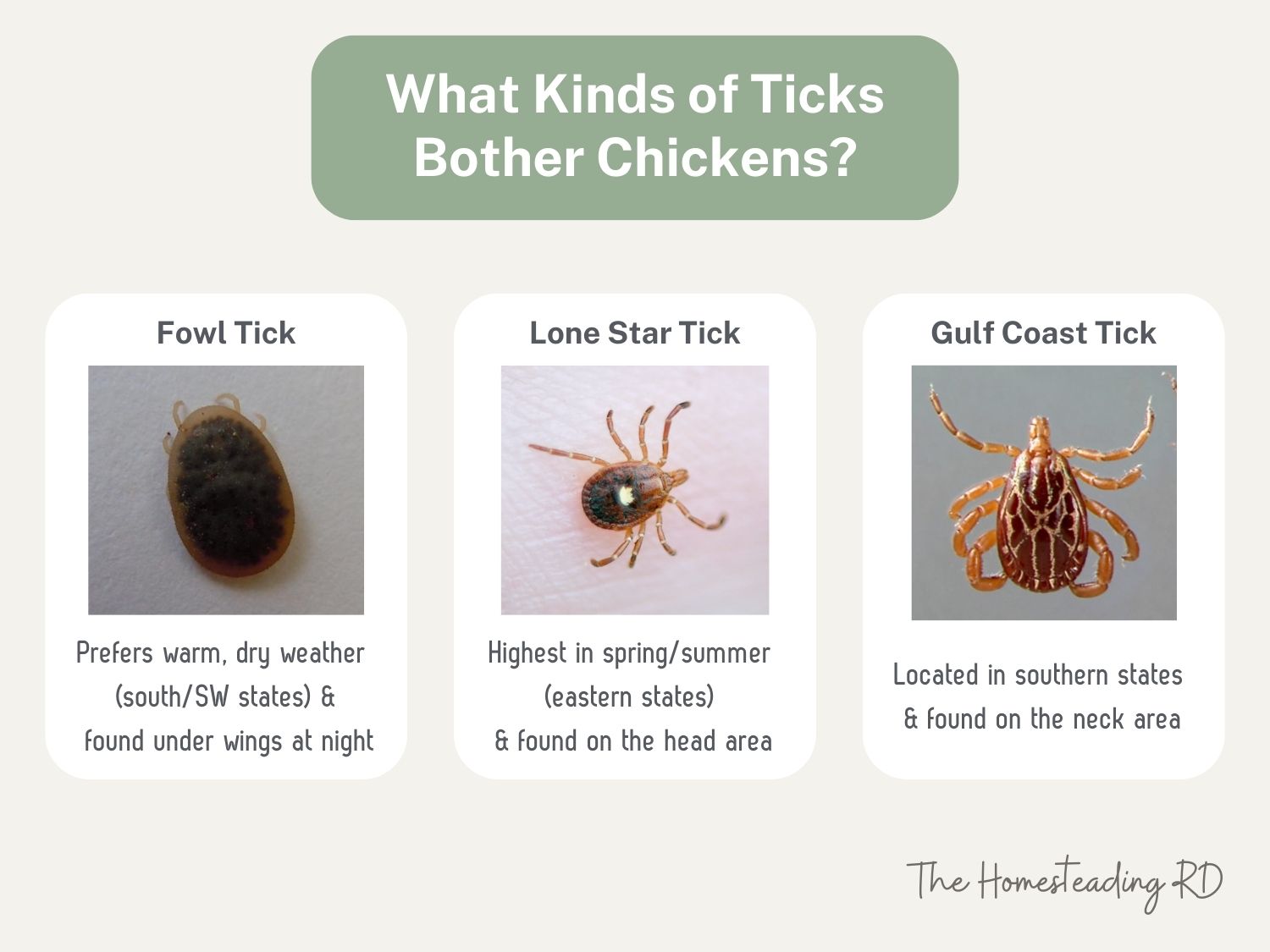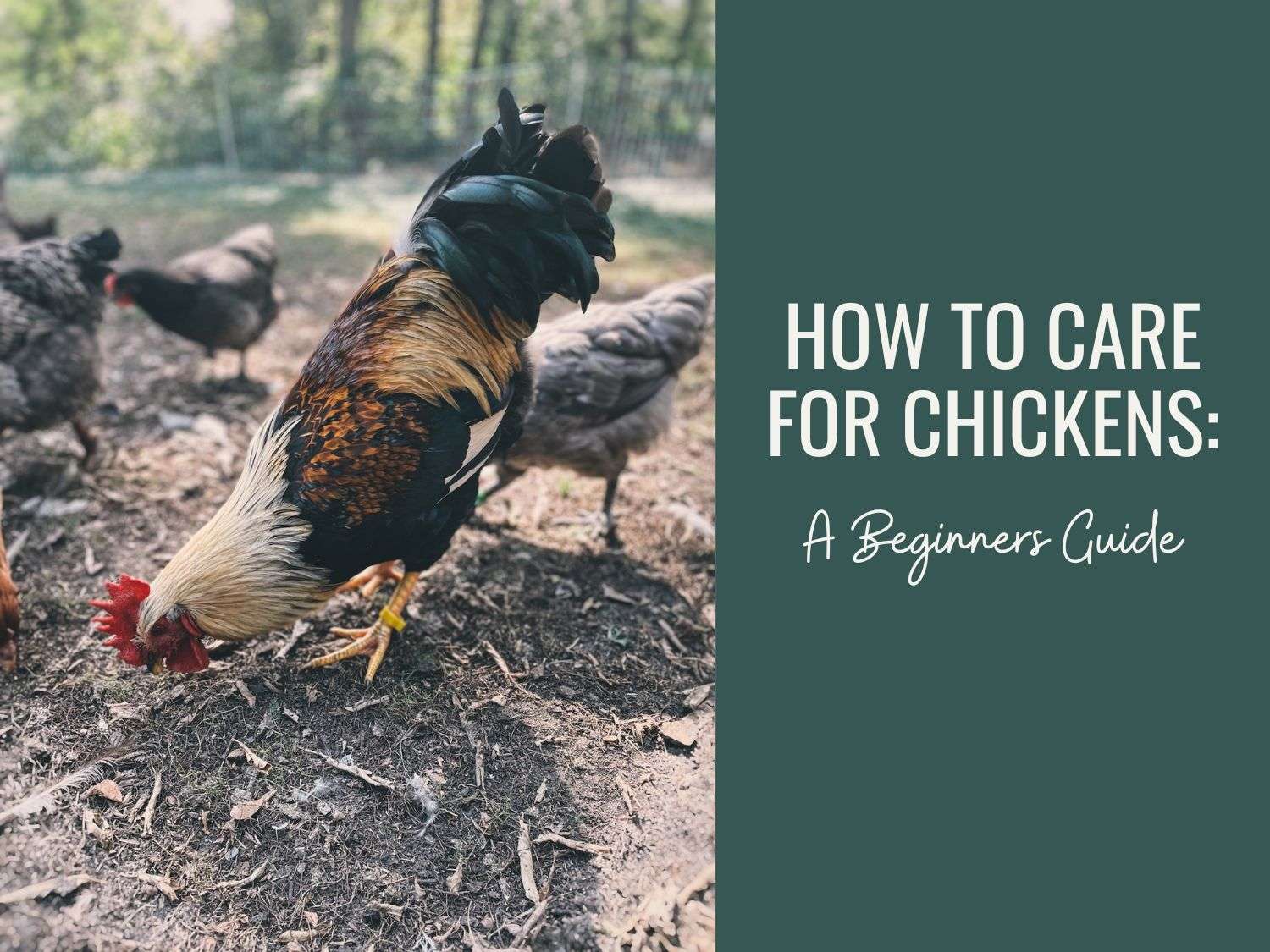If you’re looking for some natural pest control strategies, you may be wondering “do chickens eat ticks?” Ticks are certainly a worrisome pest to have lurking on your homestead, so it’s an important one to consider!
Not only do ticks give most of us the heebie jeebies, but ticks can carry many diseases as well. These include Lyme disease, Rocky Mountain Spotted Fever, and Tularemia, just to name a few. No fun!
Chickens are notorious for snacking on bugs and critters around the homestead, but do chickens eat ticks, too? Are they effective enough to control the tick population? Do ticks also eat chickens? Let’s dive in to find out!
*Disclosure: This post may contain affiliate links to products (including Amazon). I’ll earn a small commission if you make a purchase through my link, at no additional cost to you! Regardless, I only link to products that I personally use on our homestead or believe in.
Do Chickens Eat Ticks?
Here’s the answer that we’ve all been patiently waiting for – YES, chickens eat ticks! Chickens love nearly all insects, and ticks are no exception! Let your chickens out to free range and you’ll enjoy a noticeable drop in your tick population in no time.
How many ticks can they eat?
The more that I learn about chickens, the more I fall in love with them! They are tick-eating machines. A research study evaluated this and found that EACH chicken ate an average of 81 ticks in just a 30-60 min time period. Some ate as many as 331! Just imagine what a flock of chickens could do in just 1 week. Heck yes!
Do chickens like to eat ticks?
They sure do! They also like to eat other pests like flea eggs, colorado potato beetles, Japanese beetles, and mosquitos. I love watching chickens hunt for mosquitos, especially when they do a little hop to reach the flying ones!
Chickens are a great strategy for reducing pests on the homestead, plus you get all of those delicious eggs as an added bonus.
Nutritional value of ticks
I searched high and low for this and came up short, however, I did find some interesting information on the nutritional value of insects in general! Insects have a high protein content of 20-76%, making them an excellent supplement to your chicken’s diet.
They may also provide decent amounts of vitamins and minerals such as vitamin D, B-vitamins, potassium, calcium, copper, iron, and zinc (just to name a few!). I wouldn’t go so far as to eat them yourself, but your chickens sure will benefit from them!
Best Chicken Breeds for Tick Control
The best chicken breeds for keeping the tick numbers down on your homestead are the ones that are known to be avid foragers. Meat chickens, on the other hand, are lazy and tend to sit around the feeder. They would not be my first choice for tick control!
Which chicken breeds forage the best?
- Ancona
- Andalusian
- Appenzeller
- Fayoumi
- Houdan
- Kraienkoppe
- Minorca
- Old English Game Hen
- Redcap
- Spanish
- Welsummer
So, definitely add a few Anconas, Welsummers and Houdans to your flock and you should notice your tick population plummeting.
If you really want to up the ante, guinea fowl are the absolute best at foraging for ticks. While I couldn’t find a true research study to back it up, many claim that they can eat up to 4,000 ticks per day!
Do Ticks Eat Chickens?
They sure do! Ticks are blood thirsty turds that will latch onto just about anything – you, your kids, your dog, your livestock… and your chickens. By the way, if you get a tick bite, don’t forget to apply my Homemade Drawing Salve!
Thankfully, chickens naturally preen themselves and peck at anything that sparks their interest, so the chance of a tick sticking around are pretty low, but it does happen!
A chicken’s head and neck is the most likely culprit since they cannot preen there, but their neighbor on the roosting bars might!
Signs of ticks impacting your flock
While the risk of ticks causing harm to your chickens is fairly low, it can happen – especially if you live in the south!
While we typically think of internal parasites when thinking about these pests, there are external ones, too! Ticks, mites, and lice are all external parasites that can cause just as much harm.
What should you be on the lookout for?
- Red spots under the wings (fowl tick)
- Weakness and loss of coordination
- Restlessness and irritation, especially at roosting time (fowl tick)
- Pale combs
- Head shaking
- Ruffled feathers of poor quality
- Decrease in laying
Can chickens get Lyme Disease?
Technically, yes, but it seems short-lived. A research study infected some chicks with Lyme disease spirochetes and gathered data at different intervals. The initial infection rate was high (87%), but after 4 weeks, it was only 0-3%. Their immune system fought it off quickly!
While Lyme Disease isn’t a major threat to chickens, there are still 2 other tick-borne diseases that can be concerning to your flock: Spirochetosis (tick fever) and Tick Paralysis.
What kinds of ticks bother chickens?
There are 900 different kinds of ticks, but 3 can be particularly bothersome to your flock: the fowl tick, the lone star tick and the gulf coast tick. Check out the graphic below to learn more about them!
If you find a tick on your chicken(s), it’s important to remove it ASAP. The best tool to use is a pointy pair of tweezers (not the blunt ones), grip as close to its entry point as possible, and pull straight out. Apply alcohol to the site to disinfect it.
Tick control strategies on the homestead
Ticks are incredibly hard to control because they are tiny, good at hiding, have a very long lifespan (fowl ticks can live up to 11 years!), and can go YEARS between feedings. Yikes!
Outside the coop
Ticks and the outdoors seem to go hand in hand, especially if you live in a wooded area or one with overgrown pastures. While there are modern sprays that can be used, they toxic to the environment and other creatures. Even natural sprays are a poor choice since cedar is toxic to chickens.
Instead, it’s best to keep the area around your coop mowed routinely and consider removing any nearby brush and trees. However, trees and brush can provide good cover from aerial predators, so I’d only proceed with this option if you have a severe infestation.
Lastly, get let those chickens free range to keep the tick population in check! Each chicken eats an average of 81 ticks in just a 30-60 minute time period! Even better yet, get some guineas, too! They are tick-eating machines.
Inside the coop
If you have an infestation inside the coop (likely fowl ticks), it’s time to do a thorough cleaning! They are tiny and will hide in all the cracks and crevices. Start by doing a complete coop clean out by removing all of the bedding and spray with a power washer. Make sure to cover every single surface!
Next, you’ll need to spray an insecticide on a weekly basis for at least 8 weeks, followed by monthly applications. Many insecticides can be toxic and require a period of egg withdrawal. I like Electror PSP because it’s incredibly effective, low in toxicity, and you can continue to enjoy their eggs safely. It’s expensive, but it works!
If you only have a mild infestation, you can probably get away with a milder product like PREMO Poultry Spray. Its active ingredients are clove and cottonseed oil, so it’s a natural product that you won’t have to worry about using.
For prevention, I love diatomaceous earth (DE) (food grade only!). I always keep my chicken’s favorite dust bath areas topped off with some DE. They love it!
The Homesteading RD's Product Picks | |
PREMO Poultry Spray is a must-have for all chicken owners! Specifically designed to be a powerful, yet safe method of eradicating pest problems. Made of non-toxic ingredients that are fast-acting and produce immediate results on contact. | |
Certified organic & the only producers of food grade diatomaceous earth products that meet all requirements for health supplements in the USA! An effective and safe prevention strategy for poultry pests! | |
*TIP: I prefer not to spread DE in their chicken bedding because I compost it to be used in my garden. I don’t want to impact beneficial insects in my compost bin and garden.
Other Chicken Articles You’ll Love:
- Can Chickens Eat Bananas? What About the Peel?
- Can Chickens Eat Grapes? Are They Safe?
- 5 Protein Sources for Chickens (Especially While Molting!)
- How to Grow Chicken Fodder (And Save Money!)
Final Thoughts
Ticks can be a problem on the homestead, but they don’t have to be! By letting your chicken’s free range, keeping a few breeds around that are active foragers, and mowing around the coop regularly, you should be set! We rarely find ticks around our coops – they do a great job!
Are you a first-time chicken keeper? Or maybe you don’t even have chickens yet? Definitely check out my ultimate resource: How to Care for Chickens: A Beginners Guide.
*Information in this article was referenced from personal experience and/or from my favorite chicken books The Chicken Health Handbook & Storey’s Guide to Raising Chickens unless otherwise noted.
The Homesteading RD's Product Picks Over the years, I've found that the chicken health sections in the 2 books above are just not thorough enough. This chicken health handbook is a great resource to have for whatever health issues come your way. This is my go-to chicken book! Full of practical advice. It covers everything you need to know from coop design, chicken health and incubating eggs.

